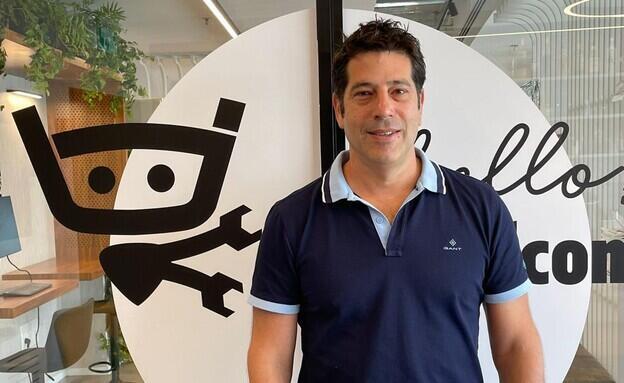
What is an AI expert and how do you become one?
AI experts are becoming the most sought-after professionals in the job market. Their unique skills and knowledge are essential as AI technologies rapidly transform industries.
Artificial Intelligence (AI) experts have become the most sought-after talent in the job market, as AI technologies evolve rapidly, reshaping industries worldwide. In Israel, a high-tech leader known for its cyber innovations, the scarcity of skilled AI professionals is a significant hurdle to maintaining its leadership in AI.
Historically, the Israeli army has been a breeding ground for cyber talents, many of whom have founded billion-dollar companies. However, the surge in AI technologies presents a new challenge for the local industry: recruiting and retaining AI experts to secure Israel's position at the forefront of this field.
So what are AI experts anyway?
The field of AI encompasses various branches of artificial intelligence, including machine learning (ML), which has its origins in data science. Professionals in this field are called ML engineers and developers, whose skills lie between data scientists and information engineers.
"For the most part, companies interested in implementing AI developments in their products will turn to candidates with such a background. This profile has the highest chance of integrating into the new job market. Some companies will combine experienced developers with a basic background in AI, while others will look for talents with specific expertise in generative models (GenAI)," explains Roni Gurvich, Head of AI at Israeli cyber company Cycode.
An artificial intelligence expert can specialize in one or more fields at the forefront of algorithm development, such as deep learning, GenAI, or computer vision. "The expectation from an AI expert is to know how to develop something that doesn't exist," says Vered Dassa Levy, Global VP of HR at Autobrains. According to her, the company recruits university graduates with a master’s degree in computer science or electrical engineering, prioritizing those who have published articles and those with advanced degrees. "We mainly recruit those with at least several years of experience in the field, including military experience, such as veterans of the 8200 unit. Finding them is very challenging, especially given the high demand that exceeds the existing supply. In this market situation, companies retain AI experts by any means possible," she says.
AI professionals can be divided into two categories: researchers and developers. "Researchers usually have a passion for innovation and solving big problems. They will not rest until they find the way through trial and error and arrive at the most accurate solution. These workers often think outside the box, look for creative solutions, and will not be disappointed even if many of their attempts fail," says Ido Peleg, IL COO at Stampli.
Researchers often have a background in data science, but not necessarily an academic degree in computer science. They may come from fields like statistics, industry, management, or even economics, depending on the specific type of product and company. "Companies have to be very creative in locating them. These people will not necessarily come from computer science classes, posing a great challenge in the search," says Peleg.
The difference between a researcher and an AI developer also lies in publishing research versus building a product or technology. "A researcher has invested most of their time and energy in publishing articles, aiming to develop AI abilities beyond what is accepted and known. We expect a researcher to be thorough, think outside the box, and aim to change things that no one has thought of changing so far,” says Dassa Levy.
Organizations that only implement existing AI capabilities can recruit developers or experts, while those developing new AI capabilities will need researchers. "Companies whose product is the language model itself, such as OpenAI or Israeli AI21, will hire more researchers, while product or technology companies often prefer developers. Researchers often have a strong academic background with many publications, while with developers, the main emphasis is on proven industry experience," says Gurvich.
A new study by McKinsey predicts that the demand for workers in professions related to mathematics, science, technology and engineering will increase by 25% in Europe and 29% in the U.S. by 2030. While in previous studies on AI skills, they distinguished between content creators and "heavy users" of AI tools, in the current study, they defined the technological skills that will be in demand as basic digital skills, advanced IT and programming skills, technology engineering, advanced level data analysis, product and user experience design, as well as scientific research and development. "This is the skill category with the most significant growth prospects according to our model. In a survey we conducted among the senior managers, they reported that their most significant shortage already today is in IT skills and advanced programming, data analysis and mathematical skills - and they expect further growth in these skills in the future," says Dana Maor, senior partner at McKinsey and global co-director of the people and organization practice. That is, it is not enough to know how to work with AI tools, a deep understanding of the technologies is also required.
Once you find them, how do you make them stay?
Once AI experts are found, retaining them is crucial. According to the Stanford AI Index, Israel ranks first in the world in the concentration of human capital for artificial intelligence. However, the high demand and limited supply of advanced-degree AI experts pose a challenge. Rapid adoption of new developments is essential, as those late to adopt new technology risk falling behind in the job market. Employers must provide access to the newest developments and a challenging work environment to keep AI experts engaged.
"Therefore it is very important as an employer to provide experts in these worlds with access to the newest developments and a very challenging and dynamic work environment while maintaining the pace of global growth to provide employees with a daily challenge and learning," says Gurvich.
"It is important for experts and researchers to develop and learn, and we encourage everyone to participate in conferences, seminars and learn everything they need, in their opinion and in our opinion, in order to be up-to-date. In artificial intelligence, the duty is to update frequently, otherwise you will be left behind and it will be challenging to fill the gap. We have an internal community of sharing articles that are published and interesting podcasts. We invite the employees to work on the newest tools," says Dassa Levy.
Also, according to Peleg, these are talents who are looking for a significant professional challenge over time. For most of them it is also important to feel that they have a deep strategic influence on the company. These are people whose job it is to help shape the company's strategy and solve big problems. "As soon as they solve them, their interest in doing things decreases and they may look for the next challenge. Therefore, it is important to maintain long-term work plans with interesting and varied goals."
How can the talent shortage be overcome?
McKinsey predicts that by 2030 up to 30% of all working hours may be automated. The change in the labor market may result in about 12 million people in the US changing their profession by 2030. Unlike previous studies, the McKinsey study shows that adopting technology alongside training initiatives can lead to higher productivity without job losses. "There is no way to 'recruit and fire' to pave the way out of the skills gap that businesses are currently experiencing. The demand for technological skills and social-emotional skills may increase as the demand for physical, manual and cognitive skills stabilizes. Managers we surveyed in Europe and the U.S. expressed a need not only for high technology skills but also for critical thinking, creativity, and learning and training abilities—skills they now report a lack of. Companies that are already navigating their way well are now increasing their focus on employee training, in addition to hiring new employees or subcontractors, to meet these needs," says Maor.
In order to hire the people with the skills they need, companies have three main options: training existing employees, hiring new employees, and hiring external employees (outsourcing). "Our survey indicates that managers combine all three of these levers, with re-skilling being the most common practice to address the skills gap. Re-training refines the skills of the company's employees, maintains organizational knowledge, and increases their motivation and loyalty.
"This is where strategic workforce planning comes into play - mapping current skills, and understanding the scope required in the future. This can allow companies to define the basket of tools required to address their unique needs, and over time. Fortunately, this strategy will also be aided by artificial intelligence and technology to become more efficient and effective. In addition, dedicated positions and responsibilities to drive the AI roadmap will be an important factor in performing focus and prioritization, as well as creating a purposeful operating model around transformation management," she says.
First published: 15:21, 09.06.24


















